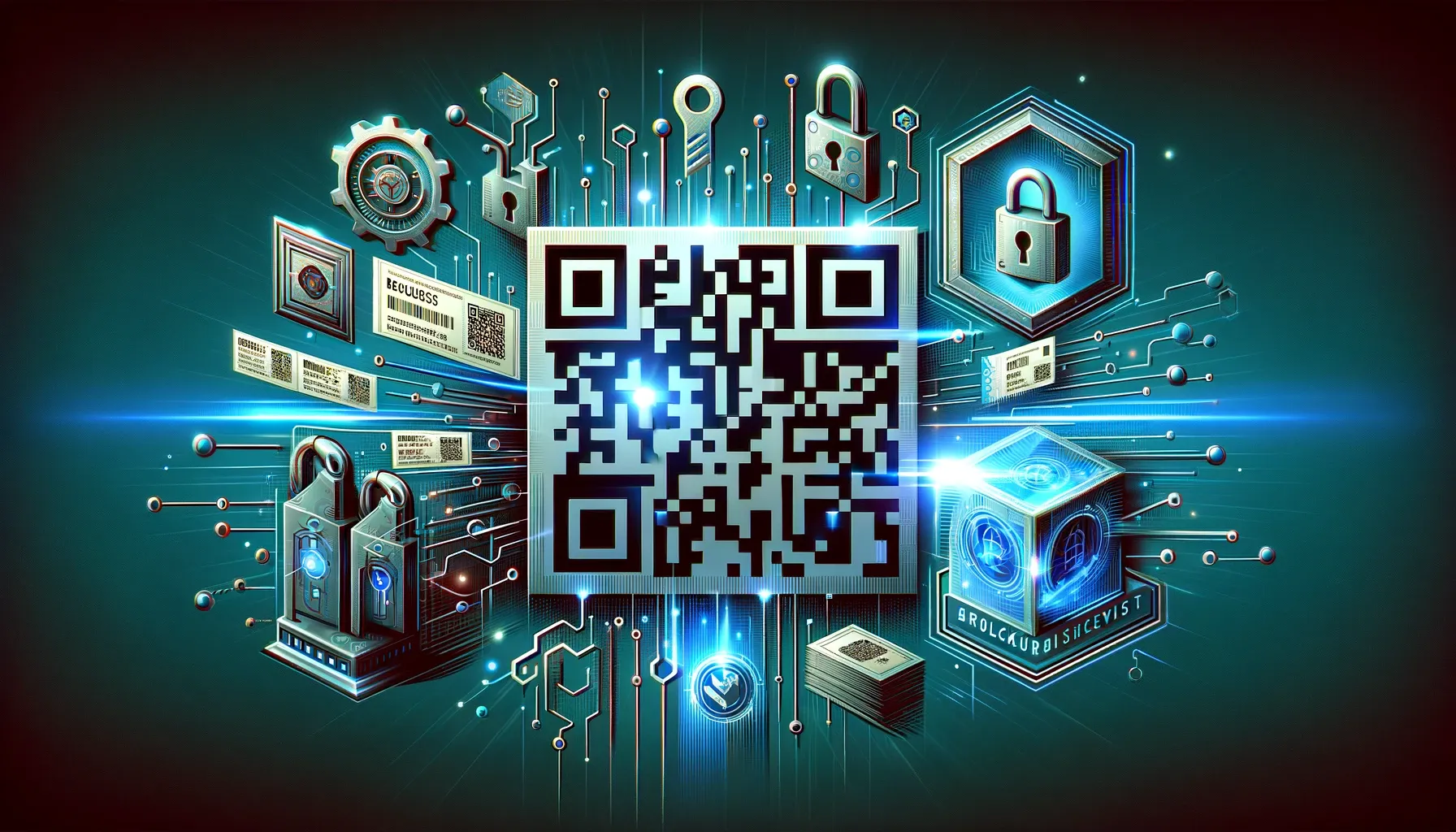
Using Dynamic QR Code Integration to Increase NFT Ticketing Security
With the advent of NFT ticketing, a revolutionary method of issuing digital tickets that can be verified has been promised. Event organizers can get rid of the duplicates and fakes that have hampered paper ticketing by connecting ticket metadata to distinct cryptographic tokens on the blockchain. But the ability to take screenshots of QR codes and get free entry was a flaw that was discovered during the initial NFT ticket rollouts. This demonstrates the necessity of dynamic QR codes that change on a regular basis in order to plug holes and fully realize the fraud prevention potential of NFT ticketing.
NFT tickets are being accepted by major artists like Post Malone and venues like Lollapalooza, demonstrating the momentum. However, implementing technical measures to forbid unauthorized screenshot sharing is necessary to fully reap the benefits. The final component needed to maintain credibility and value for both organizers and fans is dynamic QR codes.
The way that NFT tickets prevent fraud
Compared to conventional paper tickets, NFT ticketing is a significant improvement. Each ticket is linked to a blockchain-based non-fungible token, making it simple to confirm ownership and authenticity. All ticket mintings, transfers, and redemptions are transparently and irrevocably recorded in the decentralized ledger.
This means that phony paper tickets made using advanced duplication technologies won't be an issue anymore. By scanning the QR code that corresponds to each ticket, which acts as the ticket holder's visual entry pass, the validity of each ticket can be immediately verified. The verification process confirms that the QR code and the particular NFT token that represents the ticket are connected.
The ability to swiftly screenshot or photocopy someone else's QR code for unauthorized reuse, however, created a vulnerability. Although the NFT itself is still safely stored on the blockchain, ticket fraud was made possible by static QR codes.
Static QR Code Restrictions
QR codes were created as fixed, static assets linked to blockchain tokens in the initial iteration of NFT ticketing. Even after the initial scan and redemption, the copied QR codes can still be shown for additional entry because this is susceptible to fast screenshots.
Early NFT ticketing initiatives brought this flaw to light: fraudulent screenshot reuse was observed during a 2021 event hosted by packaging company PakTech using NFT tickets. Similarly, several instances of screenshot sharing being used to duplicate ticket entry were documented by the team behind the Get Protocol, an NFT ticketing demo protocol.
The duplication and fake ticket issues of traditional paper tickets cannot be fully resolved by NFT ticketing without advancements in code generation. In order to undermine the increased security and trust that blockchain-verified tickets promise, scammers can still profit from the distribution of fixed QR codes.
Let me introduce you to dynamic QR codes
An ideal solution that was absent from early NFT ticketing implementations is offered by dynamic QR codes. Instead of staying static, dynamic QR codes change on a regular basis, making them an impenetrable moving target in screenshots.
The NFT ticket serves as the link between the ever-evolving QR code. Authorized linkage to the updated QR code, which needs to be scanned for entry, is made possible by validating the NFT via blockchain. This fixes the flaw in merely displaying outdated screenshots or photocopies.
Venues can specify the necessary scan intervals with dynamic codes, such as a newly generated code every 30 seconds. For constant real-time updates, some platforms use video QR codes. This forces only in-person scans, giving organizers back control.
Since codes are quickly blacklisted and refreshed, sharing them becomes useless. Static codes' shortcomings are strengthened by dynamic QR codes, which provide impenetrable security.
implementation of QR codes that are dynamic
More development work is necessary to integrate dynamic code generation with NFT minting. On-chain, the NFT-related QR code artwork must update fluidly. Unique codes must be generated at predetermined intervals and validated before entry can be granted.
NFT ticketing platforms, on the other hand, have demonstrated that implementation is simple. In 2022, the startup YellowHeart, which specializes in music NFT tickets, introduced dynamic QR code functionality. Scanning zones that alternate periodically are a feature of its updated passport ticket. Additionally, as a fraud prevention measure, the GET Protocol switched to dynamic QR codes.
Here are some more examples:
- Video QR code technology from XRAM.
- Every few seconds, codes are refreshed by Ticketmaster's SafeTix.
More NFT ticketing vendors will give dynamic QR code integration top priority as screening vulnerabilities become more widely known.
Advantages for fans and event planners
There are obvious benefits for both event organizers and ticket purchasers when impervious dynamic QR codes are used. Unauthorized ticket duplications that compromise revenue collection can be eliminated by organizers. Additionally, fans gain from increased legitimacy and collectible value.
Events maximize sales by blocking free duplicate access and firmly prohibiting screenshot sharing. Additionally, dynamic codes preserve exclusivity by preventing reprints in the event that physical tickets are misplaced. Scarcity increases secondary market prices during periods of high demand, which dynamic codes guard against dilution.
The additional guarantees that their assets are resistant to forgery are another advantage for holders of collectible NFT tickets. In addition to securing NFT tickets as digital memorabilia, this preserves exclusivity, which is crucial for premium sales. Fans who are astute understand that preventing fraud results in retention value.
In conclusion
Static QR codes' inability to completely prevent duplications was discovered during early NFT ticket pilots. In order to achieve the transformative goals of NFT ticketing, dynamic QR codes are crucial, as multibillion-dollar ticket sales are at risk. Adoption of these promises to end copying, reprinting, and fraudulent screenshots.
Events can implement guaranteed legitimate access by tying living blockchain tokens to dynamic entry codes. Dynamic QR codes should be acknowledged as the essential component to maintain legitimacy as NFT ticketing continues to gain popularity. Their integration promises to unlock the transformative potential of decentralized digital ticketing while safeguarding user value.